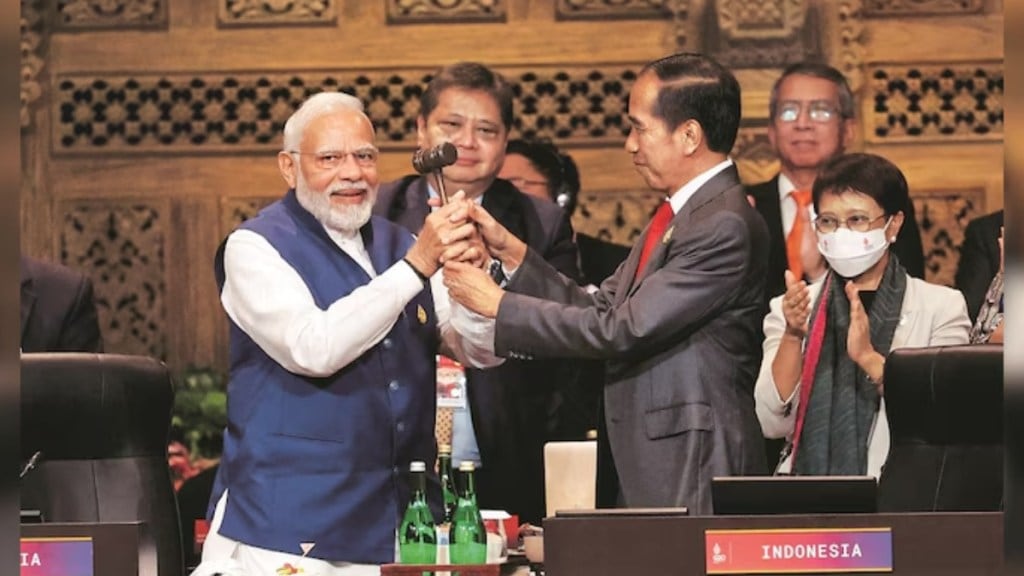As Indonesia’s President Prabowo Subianto prepares for his anticipated visit to India in 2025, the spotlight is on the increasingly robust partnership between the two nations. With bilateral trade reaching an impressive USD 29.4 billion in FY2023-24, India and Indonesia are on track to deepen their economic and defence cooperation. From energy to technology and defence manufacturing, their collaboration is expanding rapidly, providing significant opportunities for both countries in the years ahead.
A Flourishing Trade Relationship
The economic ties between India and Indonesia have grown significantly, making Indonesia one of India’s top trading partners. As noted in the latest Rubix Data Sciences report, India’s exports to Indonesia reached USD 5.99 billion in FY2024, driven by key sectors like mineral fuels, vehicles, and machinery. Indonesia’s role as India’s second-largest supplier of coal and crude palm oil highlights the strategic importance of this trade relationship, which is vital for India’s growing energy and industrial needs.
Indonesia, in turn, is capitalizing on India’s vast consumer market, with investments in sectors such as automotive, pharmaceuticals, and banking. According to Rubix Data Sciences, Indonesia’s cumulative investments in India stand at USD 653.83 million. This influx of capital and interest in India’s rapidly developing industries presents a win-win for both countries. As Indonesia continues to modernize its industrial base and diversify its economy, the potential for collaboration in sectors like electric vehicles (EVs) and clean energy is particularly promising.
Mohan Ramaswamy, Co-founder & CEO of Rubix Data Sciences, underscores the resilience and strategic focus of Indonesia’s economy. He highlights how Indonesia’s projected 5.1% GDP growth in 2025, coupled with a controlled inflation rate, offers a stable foundation for further economic collaboration. Moreover, Indonesia’s leadership in global nickel production—projected to account for 62% of the world’s supply by 2028—positions it as a key player in the global EV and battery industries. This further strengthens its appeal to Indian businesses seeking to tap into green technologies and renewable energy.
Deepening Defence Cooperation
While trade ties are flourishing, defence collaboration between India and Indonesia is equally on the rise. Both nations are increasingly focused on indigenous defence manufacturing, particularly under India’s Atmanirbhar Bharat initiative, which aims to reduce dependence on foreign defence imports. This shared interest in bolstering defence capabilities has led to several key developments, including joint initiatives in military equipment production and joint defence exercises.
A notable example of this cooperation was the visit of the Indian submarine INS Sindhukesari to Jakarta in February 2024. This marked a significant milestone in the growing maritime collaboration between India and Indonesia. Earlier this month two Indian naval warships, INS Kesari and INS LCU L57, docked at Sabang Port in Aceh, further highlighting the strengthening of naval ties. The frequent visits and exchanges are helping both countries enhance their naval capabilities and ensure regional security.
The importance of Sabang Port cannot be overstated. Strategically located near the Malacca Strait—one of the world’s most vital maritime chokepoints—Sabang Port offers significant advantages for India’s naval operations in the Indo-Pacific. Discussions about joint infrastructure development at the port are underway, as both countries recognize its importance in securing vital sea lanes and maintaining regional stability.
Indonesia’s growing interest in advanced military technology further enhances defence ties. As reported previously by FinancialExpress.com, Indonesia is exploring the acquisition of India’s BrahMos missile system, one of the most advanced supersonic cruise missiles in the world. With India’s successful delivery of BrahMos systems to the Philippines earlier this year, Indonesia’s potential acquisition underscores the expanding defence cooperation between the two nations. A high-level Indonesian delegation also visited BrahMos Aerospace in New Delhi in September 2024 to learn more about the system’s capabilities.
Shared Strategic Interests in the Indo-Pacific
Both India and Indonesia share a common interest in maintaining peace and stability in the Indo-Pacific region, especially amid growing geopolitical tensions. The Indo-Pacific is a critical region for global trade, and both nations are committed to ensuring the free and secure passage of goods through key maritime routes such as the Malacca Strait. The growing security challenges in the region, particularly the rising influence of China, have further cemented the need for closer collaboration between India and Indonesia.
While Indonesia maintains strong economic ties with China—highlighted by President Prabowo’s November 2024 visit to Beijing, where several business agreements worth over USD 10 billion were signed—its relationship with India continues to grow, especially in the defence and maritime sectors. This diplomatic balancing act allows Indonesia to enhance its security partnerships with both regional giants while maintaining its economic ties with China.
A Future of Expanding Opportunities
Looking ahead, the India-Indonesia partnership is poised to grow even stronger. Both nations are committed to enhancing trade, increasing investment, and expanding defence cooperation in ways that will benefit both economies and contribute to regional stability. As Indonesia continues to evolve as a key player in Southeast Asia and India plays a pivotal role in the broader Indo-Pacific region, their collaboration will be a cornerstone of future global security and economic development.

